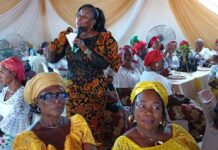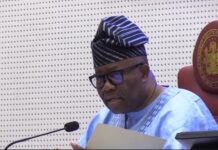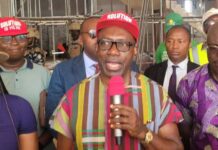The unprecedented depreciation of the national currency, the naira, against the dollar and other major international currencies is causing widespread distress, particularly for individuals planning international travels and financing the education of their children and wards abroad.
The parents are grappling with the impact of the naira fall as expenses surge, leading to a sharp increase in the cost of funding their children’s education abroad due to unfavourable exchange rates.
The naira, on Friday, recovered to 907.11/$ on the official Investors and Exporters’ foreign exchange window after falling to 1,043.09/$ on Thursday.
This is a 13.04 per cent appreciation from Thursday’s figure, according to data from the FMDQ Securities Exchange.
He said, “My Christmas was a depressing one. I was looking for forex like I wanted to start a Bureau De Change. It is so bad. The rate is so high. If I had known, I would have stocked more dollars in my domiciliary account, but with the unification of the exchange rates by this government, I thought things would stabilise.
“I just paid for my son’s accommodation in September or so. January is supposed to be for tuition. I have asked him to apply for an extension or file for any form of subsidy for international students because it is tough on me.”
NAPTAN begs govt
The National President, National Parent-Teacher Association, Mr Haruna Danjuma, pleaded with the Federal Government to intervene in the FX crisis, adding that many parents might be forced to withdraw their children from schools abroad.
He said, “We beg the Federal Government to please help us. We are Nigerians and they are our leaders. They should help us. It is not the fault of any parent who decides to send their children abroad. We should not make them suffer too much because they are already suffering by paying through their noses for their children and wards.
“One major reason people go abroad in the first place is because of the situation of things in our institutions. We need the government to work together with parents to see how we can solve the problems in the education sector.”
CANUK seeks intervention
The Assistant Secretary-General of the Central Association of Nigerians in the United Kingdom, the umbrella body of all Nigerian associations in the UK, Mr Peper Shoyemi, whose office is in charge of students and youths in the country, noted that the matter of high forex in Nigeria was a double-edged sword.
He said, “The exchange rates are at high rates, and secondly, there is no more subsidy from the central bank, which means sourcing from the open market.
“It’s very tough and an unbearable financial burden on the parents, which also puts the government in a difficult situation as the market now regulates the exchange rates.
“A lot of parents have to sell personal belongings to be able to meet the current exchange rates. Many have sold off landed properties and even closed personal businesses just to meet up. It’s a dire situation.”
Travel agents unhappy
Despite concerted efforts by the CBN to address these issues and stabilise the exchange rate, the situation remains volatile, leaving travellers and parents with children schooling outside the shores of Nigeria, as well as those going to schools in the country in challenging financial situations.
An agent at Travel and Tours Limited, Maureen Chimaobi, told Saturday PUNCH that reliance on the black market for currency exchange had led to soaring costs, impacting various aspects of international travel, from visa fees to hotel bookings and airfares.
Chimaobi expressed frustration over the apparent ease at which black market traders were obtaining dollars in contrast to banks, causing a ripple effect on ticket prices.
The agent said, “It has been quite tumultuous lately, given the fact that people are opting for the black market.
“Foreign travellers have to source Basic Travel Allowance from the black market traders, and we also rely on the black market to pay visa fees and make hotel reservations.
“It poses a significant challenge because you end up spending double what you could have if the forex is obtained from the banks.
“However, the most striking concern is how the black market traders can readily provide dollars in whichever volume you want, yet the banks do not have them.
“This situation has led to a hike in ticket prices, resulting in low sales. Additionally, other payments involving the dollar are also being affected.”
Citing instances of the rise in the cost of air tickets, Chimaobi said routes such as Lagos-London, once accessible for less than N800,000, now cost a minimum of N1.3m, leaving travellers paying considerably more for their journeys.
According to the agent, currency instability has led to a notable decline in travel sales, with a recent school tour to the UK having to reroute through Cotonou, Benin Republic, due to exorbitant fares from Nigeria.
Chimaobi stated, “Previously, a round-trip ticket from Lagos to London could be secured for less than N800,000, but now the cheapest on that route is not less than N1.3m.
“Just recently, I issued a one-way ticket to Qatar for over N800,000. Before, such a ticket could be obtained for as low as N400,000. Travellers are now paying significantly higher prices.
“In mid-March, during my company’s school tour to the UK, we had to reroute the journey to Cotonou due to exorbitantly high airfares from Nigeria.”
The President, National Association of Nigerian Travel Agencies, Susan Akporiaye, said there was still a huge demand for international travels from Nigeria, despite substantial cost increases.
Akporiaye noted that contrary to expectations, the number of requests for schooling abroad had not decreased.
“If you compare the school fees of $10,000 from early last year to what you will pay now, there’s a 300 per cent increase, and yet the demand for education abroad has not reduced; it keeps increasing despite the high costs,” she said.
However, Akporiaye added that the unyielding demand was causing challenges for travel agencies, resulting in the loss of business to other markets.
She expressed concern over the financial burden of travelling on the Nigerian populace, saying, “I don’t think any Nigerian smiles paying that kind of money travelling abroad. But it’s usually a situation of ‘we have to do it’, or ‘I don’t have a choice’. Somehow, we just find our way around it.”
The NANTA president said the impact of the fluctuation of the naira on travel frequency was noticeable, with individuals adjusting their travel patterns.
“For instance, those who used to travel thrice in three months may now limit it to once in three months. Even in the low season, the traffic is still there. I travelled in October and I still met lots of people at the airport,” Akporiaye added.
Students lament
When the naira was floated in June, Nigerian students in the United Kingdom complained that they were struggling to pay their fees. A Nigerian student resident in Manchester, Deborah Adejoro, had said, “This policy is affecting those of us here and even intending students. My sibling has had to forfeit her admission because of this policy.
“Many students have fallen victim to online scammers because they want to buy pounds; a friend of mine, for example, was a victim of third-party purchase as the banks at home are not dependable.”
Another Nigerian student studying in Leeds complained, “Now, they (parents) have to start looking for more money because the rate has gone up. If the official rate is not different from the street rate, what’s the essence of waiting for several weeks for your bank when you can just get it from a third-party platform? It has only put more pressure on the students to look for more money.”
A student, studying IT Project Management at Teesside University, lamented, “Some people are not stable because they used to convert their naira to pounds for school fees payment.”
Another Nigerian student (name withheld), who is studying at Strathclyde University, explained that the new exchange rate might cause him to drop out of school, saying, “This new reality has called for a review of the whole plan entirely. Everything has to reset at the end of the year.
“My year is ending in October/November but I now have to review everything. I am running a PhD programme and the cost is £20,000 a year. When we were using Form ‘A’ and the official rate was about N600, it was about N11m.”




